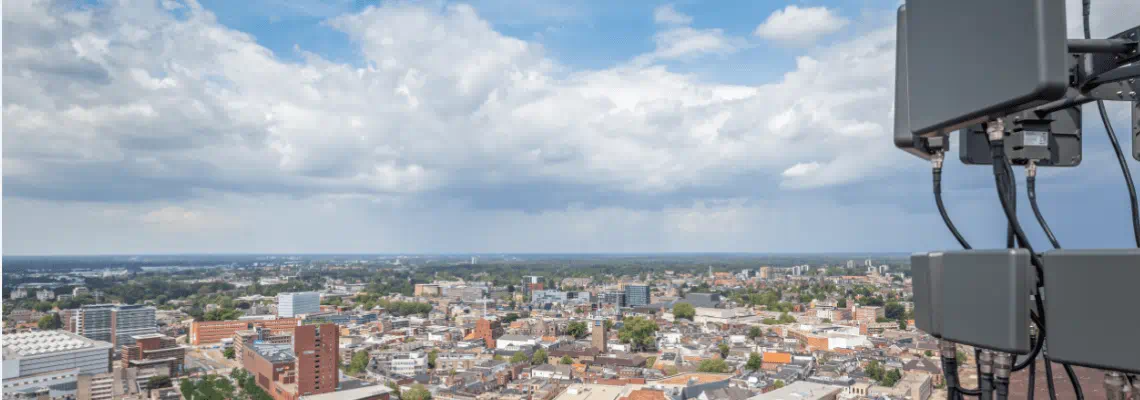Drones will forever change cities in the 21st century. But what are the concerns and objections? Social acceptance is an important building block of Urban Air Mobility and one of the themes at Amsterdam Drone Week. To find answers to these questions Municipality of Enschede, Space53 and Pakhuis-Oost, organize three debates with interested citizens, companies and representatives of the government in the Netherlands.
Wouter Asveld, drone policy advisor at the Municipality of Enschede and Aerial Uptake project leader, commissioned research into the social acceptance of drones. “We did research with 5 regions in Europe. What we learned was that many people have quite a positive basic attitude towards drones. However, if you continue to ask, you will see that many people find drones a lot less pleasant as soon as they don’t exactly know why a drone is flying somewhere. Some even get really angry or nervous. We then asked what needs to be done to mitigate those negative feelings and it shows that people mainly want to know why a drone is flying and who is piloting it. And whether their privacy is not being violated.”
Public Acceptance
Steven Dorrestijn, ethics researcher at Saxion University of Applied Sciences and involved in measuring the acceptability of drones: the so-called ‘readiness scan’, is clear on the main issue: "Are drones ethically ready to use in society?"
According to Dorrestijn, this revolves around the questions: “What are the side effects of the use of drones and is it a desirable development? It's a huge challenge to keep up. Developments are so rapid that people's awareness and knowledge of new technology is lagging behind. This has repercussions on acceptance. The same thing will happen with drones as with cars in the past." But security is also an issue, according to the ethicist. “Digitization and drones offer many advantages, but we also see that there is more and more data theft. We had not foreseen that and it is something that we should really think about better.”
Noise pollution
Roalt Aalmoes, researcher noise nuisance & public acceptance drones at Royal NLR, conducted research into noise nuisance from drones. “Research into noise nuisance from drones is currently taking place worldwide, not just in the Netherlands. And I think the place where a drone flies is very important for the degree of acceptance. Noise nuisance will be perceived differently in the countryside than in the city. Just like the type of flight affects acceptance. A drone with a defibrillator on board will cause less inconvenience and annoyance than a pleasure flight.”
“So sound is something that we have to pay a lot of attention to,” says Aalmoes. “But the place where drones fly and which routes they fly on are also matters that we should think about more carefully. Are you flying over the city because the nuisance is already greater there or not because many people live there? Are you flying over nature reserves because there is less inconvenience to people or not because you are damaging nature?”
Despite the attention for the negative effects of drones, Asveld thinks that they will become indispensable in a few years' time. “To be honest, I also think we should be more concerned about cars than drones. Because the number of accidents with the latter is really minimal."
Dorrestijn is more concerned: "What will the world look like if there are just as many drones as there are cars now?"
According to Aalmoes, the acceptance of drones stands or falls with the application. "What are they used for?"
Municipality of Enschede
The municipality of Enschede aims to become the drone capital of Europe. Drones are increasingly being developed, tested and deployed in Twente. For example at Space53, the police and the fire brigade. Saxion Hogeschool and University of Twente profile themselves with high-quality technological research on drones and their social, legal and ethical consequences.
The full broadcast can be viewed here In Dutch only:






